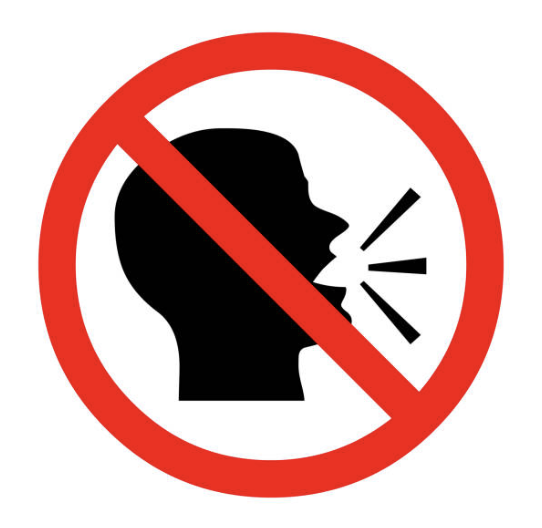If I might interject.
One word mean many thing to not same people.
Use special word for special job. Special job doers no get dizzy. All know special word mean same thing.
Special words job help make many people with not same word skill talk gooder.
If you need an example of this read republic book 1.
Socrates essentially just dunks on these guys that are trying to define justice.
One of them says that justice is doing good to your friends and evil to your enemies
The way that socrates reubuts this argument is that the fella in question doesn’t define friends, enemies, good, or evil, so how can he expect to come up with an idea of what justice is before first defining these other concepts that are meaningful to us because of their common usage, but can be twisted greatly in logical argumentation.
I like the part where one guy goes, “Justice is paying your debts” and Socrates goes, “oh yeah? so it would be just for me to return the gun my friend loaned me, when he comes back requesting it in a murderous frenzy? Yeah, that’s what I thought.”
And the guy just leaves lol
Smartest man involved, cephalus was!
And yet? We’re still no further along. 🤷🏽♂️🤪

I hadn’t actually considered academic writing as an expression of sociopathic manipulation until now, but it explains a lot.

This is perfect
I understood all of that.
That’s what half a year of city college will get you.
I’m still pissed at being forced to write in a passive voice in university. It’s awkward and carries less information, and makes it seem like nobody had any agency, science just kind of happened on its own and you were there to observe it.
I don’t know why anyone would prefer something like “An experiment was conducted and it was found that…”
To the much better “We conducted an experiment and found…”
I got taught that rule in my freshman year, but then my thesis advisor told me to stop doing that because “only old people write like that”
So I suppose academia is evolving (however you still aren’t allowed to use first person speech)
That also sounds odd to me. I’ve been consistently taught in school to avoid passive voice and it was a huge struggle for me for a long time (case in point). I’m attending a college in Canada for the record.
Yeah, it’s dumb. We write like normal people in academic papers too. I don’t know why they ever taught it this way.
convinced some people just get off on arbitrary grammatical rules
Remember, it’s never “your dildo,” it’s “a dildo.”
Yeah, it’s an in-group exclusivity signifier.
Shame, math is some of the worst at this, everything is named after some guy, so there’s 0 semantic associativity, you either know exactly which Gaussian term they mean, or you are completely clueless even though they just mean noise with a normal distribution.
edit: Currently in a very inter-disciplinary field where the different mathematicians have their own language which has to be translated back into first software, then hardware. It’s so confusing at first till you spend 30 minutes on wikipedia to realize they’re just using an esoteric term to describe something you’ve used forever.
IT guy here, we suffer from a similar problem where everything is an acronym so it sounds like alphabet soup that if said as a word means sometimes you can’t even quietly go look it up later. You either nod along knowing what it means or nod along not knowing what it means but having no chance to learn without outing yourself.
And you can’t out yourself because, in many workplace cultures, the appearance of knowing is more important than actually knowing. :/
And then you have multiple identical abbreviations meaning different things or different things that are pronounced the same or multi billion dollar ompanies naming their product after existing words (like Microsoft Word or Office or Outlook…).
Mix in abbreviated customer names, names for servers and internal teams (no, not Microsoft Teams©) and everything is only an incomprehensible letter mumbo-jumbo.
Had a ticket about sports sites being blocked, college talked about how the change was IOC related. International Olympic Committee or Indicator of Compromise, you decide!
Gotta love Dirichlet boundary conditions (the function has to have this value), Neumann boundary conditions (the derivative has to have this value) and Cauchy boundary conditions (both).
On the other hand, there’s a bunch of things that are so abstract that it’s difficult to give them a descriptive name, like rings, magmas and weasels
Trying to teach yourself higher math without a textbook is nearly impossible.
You could try just Googling all the Greek letters and symbols but have fun sifting through the hundred-odd uses of σ for the one that’s relevant to your context. And good fucking luck if it’s baked into an image.
The quickest way I’ve gotten an intuition for a lot of higher math things was seeing it implemented in a programming language.
I’ve been learning crypto math the hard way, it’s brutal.
I’ve found one way that works is to learn about the people, like learn about Gauss’s life and work, it helped give me context and perspective for the random terms.
Yeah, it can be really helpful to understand the context and the problems they were trying to solve.
Like for example, I think a lot of pop-sci talk about Special/General Relativity is missing huge chunks of context, because in reality, Einstein didn’t come up with these theories out of thin air. His breakthrough was creating a coherent framework out of decades of theoretical and experimental work from the scientists that came before him.
And the Einstein Field Equations really didn’t answer much on their own, they just posed more questions. It wasn’t until people started to find concrete solutions for them that we really understood just how powerful they were.
I really like the naming of things after their discoverers/inventors. I’m picturing a mathematician getting upset:
“How dare you speak about Friedrich Gauss like that. He dragged that universities astronomy department out of the stone age, even after the death of his first wife…”
The history of the people helps me with remembering the concepts.
Disclaimer: I am NOT a mathematician.
Currently in a very inter-disciplinary field where the different mathematicians have their own language which has to be translated back into first software, then hardware. It’s so confusing at first till you spend 30 minutes on wikipedia to realize they’re just using an esoteric term to describe something you’ve used forever.
Yeah, this happens a lot. I studied math and I often got the impression that when you read other researcher’s work, they describe the exact same thing that you have already heard about, but in a vastly different language. I wonder how many re-inventions and re-namings there are of any concept simply because people can’t figure out that this thing has already been researched into. It really happens a lot, where 5 people discovered something, but gave them 5 different names.
I don’t read much (/any) academic writing, but does it really misuse words the way the link portrays?
Eg
- academic writing isn’t prose, like that’s almost the definition of prose.
- intra-specialized doesn’t mean anything (the intra prefix didn’t work on adjectives)
- “obfuscating … accessibility” means making it difficult to see that it is accessible, where the author probably actually wants to say “reducing the ability of outsiders to access the meaning”
I get that it is satire, but imo it would be better satire if he put in the work to actually make it mean something. Unless the point is that academic writers misuse thesauruses this badly.
I think the point is that academic writers use large terms, despite using them wrong, when diminutive ones would suffice.
They use big words for the sake of using big words. Whether they make any sense whatsoever, is entirely beside the point.
The text, as I understand it is essentially saying the same thing, using big words to obfuscate that they’re actually saying something rather boring and simple, which also has the point of obfuscating the meaning of the text to anyone who isn’t an academic; aka someone who isn’t used to such nonsensical word play.
There’s a good reason I’ve avoided any work in academic fields. They incorrectly use terms, which just muddies the water on what the hell they’re actually saying. Not only because the terms are big/less known, but because they’re often used wrong.
IMO, academics are morons who like to sound smart.
… Do you concur?
I don’t think that there’s a higher concentration of morons in academia than in larger society. However, their professional experience is pretty different from the so called ‘real world’ so they definitely can have some unfathomable blind spots.
I agree with this, especially that the number of morons isn’t higher than society at large, and therein lies the problem with society.
Not unlike LLMs. How curious.
Socioeconomic encryption. Fun fact: the Chinese written language was focused on this concept — and Korean focused on doing the opposite, in fact.
thesauri*
*thesaurisi
Veni, Vidi, Thesaurisi?
All English words that don’t have a specific pluralization (eg mouse, mice) can be pluralized with either an s or an es. It’s also a Latin and Greek root, so it can be pluralized as you did, in the Latin way, or the Greek way (Thesauroi), or alternatively with the s/es ending, all of which are correct!
Unlike “octopi”. 🙇🏽♂️
Nope! Octopuses, octopuses, and octopi are all correct afaik
Wrong, sorry. Októpus is a Greek word that translates to “eight foot,” and pluralizing it via Latin has no etymological basis. “Acceptable/widely used” is in no way synonymous to “correct”, let’s not forget.
Not who you’re responding to but I must vehemently disagree. In English, which doesn’t have a centralized governing body, the correct way of pronouncing/spelling something depends on your intention and expected audience. If your intended audience is English speakers then the correct spelling is probably octopi or octopuses, whichever you believe will cause the least confusion/distraction (surely it varies regionally).
However, usually my intention is to portray my unfathomably superior knowledge and intellect, so the correct spelling/pronunciation in this case is: octopodes (which I think he had listed but ironically got ‘corrected’ to ‘octopuses’).
Modulating one’s speech according to audience is not dialectic morphology, much less general etymology — it’s a matter of scope.
You can use whatever you want, no argument there. Whether or not it comes off sounding semi-literate is more up to your audience and your own self-awareness than any “centralized governing body”, citizen. 🙇🏽♂️🫣
“As with many modern scientific creature-names, it was coined in Modern Latin from Greek elements, so it might be allowed to partake of Latin grammar in forming the plural”
Literally from the link you provided. It was coined initially in the language of modern latin, from Greek roots, certainly, but the word objectively and literally comes from modern latin.
It’s saying that it uses terminology that is well-understood, specific and explicit within the field, but depends on a common understanding of the language used. So people outside the field are unable to understand it, even though they would be able to understand the actual concepts.
I agree that that’s probably what it’s trying to say, but I don’t think it actually says that.
I think the meaning of the actual words that he chose is less important than the fact that it sounds absurdly convoluted.
Also I don’t think his point is true. If you read academic papers come up most of them are pretty easy to understand.
Academic writing can be used as a smoke screen to mask bullshit, or to express ideas concisely. But this can happen in all communication.
Another important function is that communicating in this style shows you know “how thingsa re done”. It functions as an implicit screening for wierdos, but comes at the expense of keeping people wit hgood ideas but an unadapted writing style out of the field.
I understood every word of that, and I hate you.
I understood about 45% of that, and I also hate them.
Reminds about GCC wiki.
What does reload do?
Good question. The what is still understandable. Don’t ask about the how.
In my first year of uni, I had to write a 20 page paper, so I wrote it about how academic writing sucks.
Cheeky as hell, but I got a good grade, and my teacher liked it
It’s legit a great topic. Scientists need to remember that communication is an important skill.
In defense of jargon:
coming up with new ideas and expressing them to others requires new vocabulary. You can’t simply say things in “plain English” especially when you want to communicate with peers.
This is why academia is so often refereed to as a discipline; you must train yourself in new ways of thinking. Making it accessible to the layperson is the job of scientific communicators, not scientists at large.
And it’s not like this is a unique issue with acedemia, every organization I’ve ever participated in had special vocabulary if it was necessary or not.
Many professionals (not only scientists) are really bad at crafting sentences and texts, even without jargon.
I get jargon, but even if you replace all of the jargon in a typical paper with simple words, the writing style is often horrible. It’s often weirdly repetitive, has fluff-pieces and empty phrases, and just doesn’t get to the point. (I’ll ignore the inherent worthlessness of many articles here, since this is a symptom of funding policy)
I don’t expect a scientific article to be understandable for someone outside the field, but do yourself the disfavour and ask a random scientist, what it is they’re actually doing and to explain it in simple terms. Most can’t. And that says to me, that these people never learned (or were taught) how to actually boil a concept down to its essence. And that I think is pretty bad.
As an example, two scientists from different fields could work on almost the same problem from different angles, but they would never know that if they talked to each other, because they are unable to express their work in a way the other person can understand.
Academia is usually about minutiae, not concepts. Sometimes they get so hyperfocus in small areas that they are completely unable to give a general summary of what they are doing in the bigger picture. To do so would require them to understand things outside of their very narrow field of study.
I don’t expect a scientific article to be understandable for someone outside the field, but do yourself the disfavour and ask a random scientist, what it is they’re actually doing and to explain it in simple terms. Most can’t. And that says to me, that these people never learned (or were taught) how to actually boil a concept down to its essence. And that I think is pretty bad.
As an example, two scientists from different fields could work on almost the same problem from different angles, but they would never know that if they talked to each other, because they are unable to express their work in a way the other person can understand.
This is why I believe scientists should be required to take liberal arts classes; especially related to written and spoken language. Trying to read a scientific paper as an outsider is painfully hard because you’re trying to understand what the Big Words are trying to say, but then the paper also takes a borderline meandering path that loops back on itself or has sections that mean nothing, leaving you (or at least, me) confused. Like, c’mon man, I’m trying to understand what you’re saying, but your narrative is more convoluted than House of Leaves.
How can you expect to truly make a breakthrough in science if you struggle to accurately and precisely convey your ideas to your peers? Study the great writers so your papers can have great writing and results.
If it helps, try doing it from a scientific perspective - as if you’re studying a brand new creature or property of physics - and make notes on things like,
How the author expresses their ideas.
Was the author easily understandable?
What, if anything, made it easier or harder for you to understand what was written?
What elements made the writing more precise, concise and/or accurate to what the author was trying to convey (using outside sources)?
…and so forth.
(And yes, I also think liberal arts students should be required to take some level of hard STEM classes (not watered-down “libarts-compatible” stuff, but actual physics, chemistry, biology, etc) as well.)
Edit: you might even end up with a reputation for being more intelligent than you actually are, simply because you’re able to convey your ideas significantly better than your peers.
Edit 2: or alternatively, study a programming language until you’re decent at it, and then write your papers as if you’re trying to explain them to a computer.
Jargon is only legitimate when it clarifies more than plain English. If it does, fine, use it.
exactly, i’ve noticed some people on youtube can be REALLY good at this, like Your Dinosaurs Are Wrong for example. Just introduce your jargon the first time it’s used and put up a little explanation every time afterward.
you know the academic jargon is bad when you can translate it into french and the sentence is almost the exact same
French scholars are famous for their mastery of obscurantism. That’s what this is called.
Oh don’t even get me started about french philosophers - philosophy in general is very guilty of this, but french are absolutely the worst. Entire books of complete jargon where the point seems to be to sound as fancy as possible without as little content as possible
or as Freud put it:
“So, I gave my lecture yesterday. Despite the lack of preparation, I spoke quite well and without hesitation, which I ascribe to the cocaine I had taken before hand. I told about my discoveries in brain anatomy, all very difficult things that the audience certainly did not understand, but all that matters is that they get the impression that I understand it.”
I asked ChatGPT to convert the text to common words:
“Academic writing is often hard to understand because it uses complicated words specific to a particular field, making it easier for experts to communicate with each other but harder for outsiders to follow. This keeps certain knowledge limited to a small group of people and maintains a cycle where only the educated or ‘in’ crowd can fully engage, while others are left out.”
I think this leaves out the “epistemological imperative”, which I understand as the compulsion to use this specific language for the sake of being scientifically accurate. Particularly when dealing with peers, who will all too readily hold you accountable for inaccuracies, being precise is important, possibly even necessary to avoid the scientific community’s habit of tearing into any error to prove their own proficiency by showing up your deficiency.
I can’t find my source any more, unfortunately, but I read an article once about how students are essentially scared to have their writing torn to shreds because they were too direct in their assertions. I recall that it related an anecdote about birds on a movie set that were supposed to all fly away at the sound of a gunshot. Except they tried to fly away beforehand, so the solution was to tie them to the branch and release that wire when they were supposed to fly. Then the birds tried anyway, didn’t get anywhere, ended up hanging upside down and falling unconscious. When they tried again (after restoring the birds to consciousness), they released the wire… but the birds had learned that trying to fly away was unpleasant, so they just sat there instead. Why bother, if you go nowhere?
In the same manner, academics who write too clearly will end up getting bad grades, have papers rejected, essentially be punished for it. They may learn that, by carefully coaching their assertions, assumptions or just about anything that could be conceived as a statement of facts in a multi-layered insulation of qualifying statements and vague circumscriptions to avoid saying something wrong and show the acknowledgement that, like science in general, the causation they’re ascribing this phenomenon to is at best an educated guess and, while we can narrow down things that are not true, we can never be certain that things we assume are true really are and won’t be refuted somewhere down the line, making them look like morons…
I lost track of the sentence. Anyway, if you make mistakes, you’ll get attacked. Most people don’t like being attacked. So if you’ve been attacked enough, eventually you’ll either give up or adopt strategies to avoid being attacked.
Being complex and obscure in your phrasing makes it harder to attack you. And if it’s hard to understand you, people might just skim the points and not bother with the attackable details anway. If you notice that people who write in a difficult style don’t get attacked as much or as badly, you’ll adopt that style too.
Eventually, your writing is read by students stepping to fill your shoes. They may not understand why you write this way, but they see that many successful academics do. They may also experience the same attacks and come to the same conclusion. Either way, your caution has inspired a new generation of academic writers who will continue that trend.
Finally you’ll end up with a body of scientific knowledge that only experts can still navigate. They know to skim past the vagueness, indirections and qualifications, mostly understand the terms and can take the time to pick apart the details if something strikes them as odd. The common rube doesn’t understand jack shit. Your research may further the understanding of a small group of people, possibly see some practical use, but the general public can’t directly make any use of it.
The common rube doesn’t understand jack shit.
Everyone has their area of expertise. “The common rube” at the hospital can be a professional cab driver who has half the city memorized or a sports buff who can tell you every significant baseball stat going back twenty years or a vagrant who has survived by mastering a litany of social protocols unique to the homeless population or a musician who has an entire arcane language for their craft.
As you specialize, you develop a jargon for the minutiae of your field. Which does go to your underlying point
Your research may further the understanding of a small group of people, possibly see some practical use, but the general public can’t directly make any use of it.
More broadly, they wouldn’t have the opportunity to leverage the research productively. If you need an electron microscope or an industrial boiler or a large population of waterfowl to make practical use of a piece of research data, most people aren’t going to be in the position to find it useful.
That said, expanding the pool of expertise is also supposed to be a major role of the academic system. If people in or adjacent to your field have trouble understanding your research output, it isn’t easily transmissible to people who do have an opportunity to leverage it.
One of the reasons why you have these large populations of sports buffs and musical talents and cab drivers bouncing around is thanks to the improved mechanisms of education distribution. Finding a middle ground between specificity and accessibility is critical if you want to grow your population of specialists.
Don’t worry. It’s LLMs all the way down. Always has been.
You should ask ChatGPT to generate some porn so you can go fuck off with it. Sick of hearing about these LLMs.
They can absolutely be useful tools if you use them right. They’re just quite overhyped at the moment.
Nah they’re useless. They do a worse job than a human and cost more power than cryptocurrency.
Shut them all down.
I understand; I was just being transparent with the fact that I’m a lazy motherfucker and that I used it to “translate” the text.
Hopefully it goes the way of 3d tvs but it won’t.
Corporations are to invested
inhales
Complex 1a was prepared according to well-known synthetic procedures. The reduction potential of the complex was increased due to the nephelauxetic expansion of the occupied FMOs induced by photolytic epimerization of the auxiliary tetrahydrophosphazolidine sulfide ligand to enable a strongly σ-donating dihaptic coordination mode.
translation: we made molecule 1a, we shouldn’t need to tell you how, it’s obvious, lmao, git gud. the molecule became less likely to gain extra electrons because shining light on it made one of its weird-ass totally-not-bullshit parts wiggle around a bit so that it could bind more strongly to the metal atom through two of its own adjacent atoms, making the metal atom’s relevant electrons floofier.
‘floofier’ should be standard academic jargon
I dated a girl who acted like writing / talking like that made her better / smarter than other people. She got off on the elitism. I’m no academic slouch, but my philosophy is if you can’t break it down in basic terms that anyone can understand, then you don’t understand it enough yourself.
I would go so far as to say that knowing and understanding something is only half of the issue. The other half is being able to clearly convey it to others. And that’s where a lot of people (myself included) fall short.
I think any scientist should able to convey at least the high level concepts that they’re working on at the level that a smart 12th-grader can follow. If you can’t do that, I think that’s a sign that you’re probably not thinking about your work very clearly. Being able to distill things and context-switch back to a birds-eye view of your work is critical for knowing what direction you’re heading in.
(I say this from the perspective of a climate scientist - our field has a pretty active public/lay conversation and lots of science comma, but I think the concept still applies to other sciences, and social sciences.)
I don’t agree, there’s a reason why we need people like Carl Sagan and Neil DeGrasse Tyson explaining things in simpler terms and that they’re not the people doing the research itself…
and that they’re not the people doing the research itself…
I don’t think that’s relevant. People like Stephen Hawking and Brian Greene have also done great at explaining science to the general public.
Sure, but not being able to explain it in layman’s terms doesn’t mean you don’t understand what you’re working on and in fact the majority of scientists and engineers and programmers and highly specialized individuals aren’t very good at vulgarization for the simple reason that they don’t need to do it when they’re accomplishing the work and outside of that they’re not required to explain their work to laymen since there are people specialized in doing just that.
I also disagree with the original comment you replied to. I was just responding to the part I quoted. I agree most specialists in a field don’t know how to explain things to non-specialists and I agree it’s important to have people who know how to explain things in layman terms, I jusy don’t think it’s relevant if those people are also the ones doing the research or not.
















